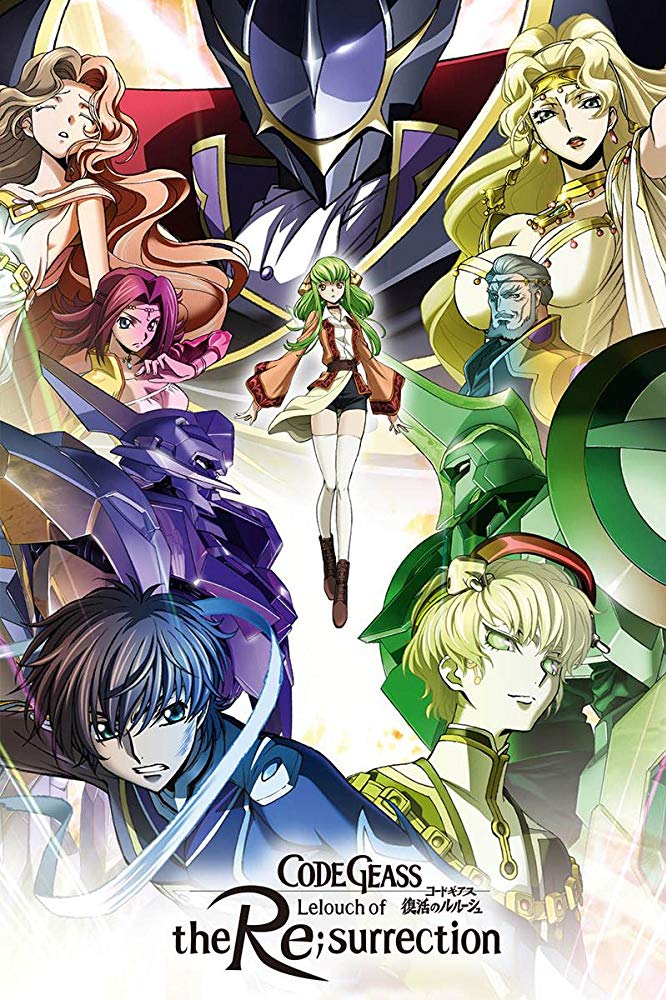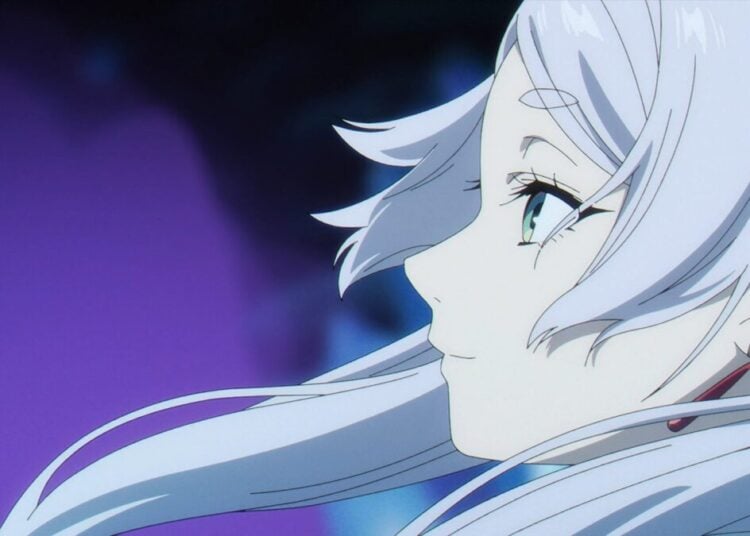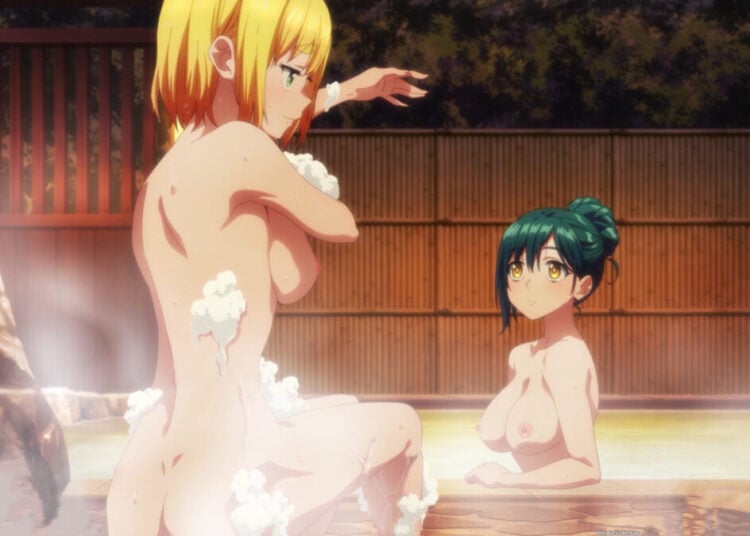(Image via IMDB)
Since it first aired on October 6, 2006, Code Geass has become known as one of the most popular original mecha franchises. Conceived by Ichiro Okouchi and Goro Taniguchi, the two-season series has spawned myriad manga spin-offs, video games, and an OVA side story (Akito the Exiled) over the course of a decade. The show is also known for its bittersweet ending, in which the intelligent and mystically empowered Lelouch vi Britannia dies. Not that it’s stopped at least some fans from speculating whether he actually survived. Or rumors of a third season from being spread about for years.
Fast-forward to the 10th Anniversary, on November 27, 2016, when Sunrise announced not only a three-part compilation film series but also revealed its next project for the franchise: Code Geass: Lelouch of the Re;surrection (Code Geass: Fukkatsu No Lelouch). With Taniguchi and Okouchi once more at the helm, many of the details surrounding the latest entry were shrouded in secrecy. Even its reveal as a film sequel, rather than the speculated “R3” third season, was for a time kept under wraps. Nonetheless, a direct continuation to the show after such a definitive finale might seem a rather risky move.
With the movie itself having been out since February 9, 2019 (May 5 in the United States), it begs the question: after all these years, is it worth it? Warts and all, yes.

The End of the End of History
About two years have passed since the dramatic fulfillment of Zero Requiem. The reconstituted United Federation of Nations has kept the world united in the relative peace that Lelouch had orchestrated. But all’s not well beneath the surface, as unintended consequences come to the fore. The defiantly militant Kingdom of Zilkhstan, known as the “Land of Warriors,” has found itself in dire straits in a time when there’s no demand for its soldiers or mercenaries. Its sibling leaders Shamna and Shalio, alongside a breakaway Geass Order group called Farlaf, seek to capture the current Zero and Nunnally, now figureheads of the Principality of Britannia, all as part of a larger scheme to ensure Zilkhstan’s power. As the Black Knights infiltrate the country, they’re accompanied by CC and her secret companion, who are on a selfish quest that could very well save the day or lead to all their deaths.
If there’s a glaring hurdle, it’s not that the movie assumes that the viewer has some familiarity with the characters and lore, but that it follows the alternate continuity of the compilation films. Among other changes, the alternate continuity retcons parts from the series, including the removal of Mao’s story from season one and the outcome to Shirley’s arc in season two. For those who love the original show, this may come off as either confusing or outright divisive.
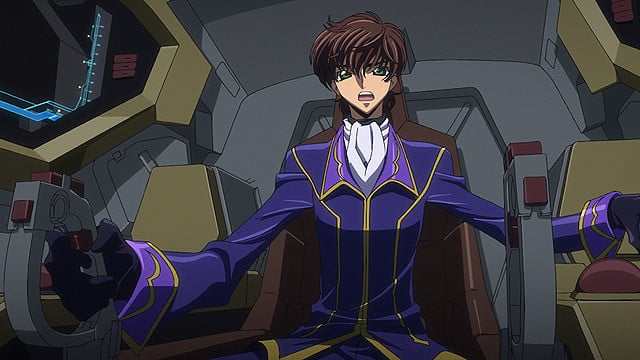
That being said, the film does make an effort to be as self-contained as possible. Whether it’s fleshing out the high-tech and traditionalist trappings of Zilkhstan (located where Pakistan would be), introducing concepts like Geass powers in the thick of the action, or showing the consequences of Zero Requiem among the returning cast, Lelouch of the Re;surrection doesn’t require too much archive-binging to really get into.
Then, you get to the rest of the package.
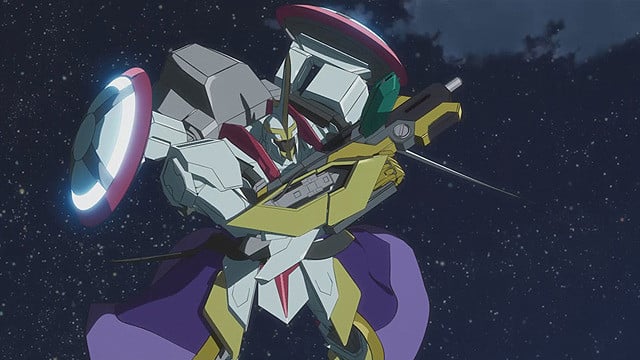
The Once and Future King
Practically from start to finish, the movie can come off like a long episode of the original show. While that could mean “filler fodder” or “cheap cash-in” in lesser hands, this works wonderfully in its favor.
The sights and sounds hearken back to the original, especially. The visuals, in particular, from the character designs by CLAMP and the detail on the Knightmare Frames and environments, to the largely seamless integration of CGI with conventional animation, are top notch. Many of the original seiyuu (including Jun Fukuyama as Lelouch himself) also return, their performances being almost identical to their work over 10 years ago. Combined with the use of familiar tracks alongside new musical pieces, it can feel at times like watching the original Code Geass all over again.
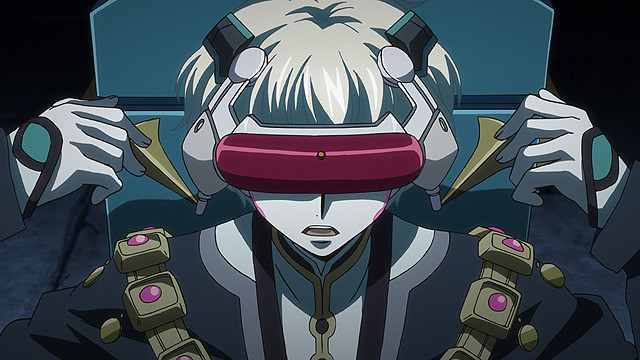
The movie is further helped along with tight writing and generally solid pacing. The storyline itself is easy enough to follow, even with the Geass-related hijinks later on. Alongside explosive mecha combat or brutal close-quarters action, not only are there enough twists and a sense of continuity to keep viewers invested, but whether it’s a desperate scramble through Zilkhstan, a tense diplomatic meeting, or a moment of calm before the final battle, barely any minute is wasted. The writers manage to slip in opportunities to address lingering plot issues from the original show, particularly those involving the Black Knights and Zero.
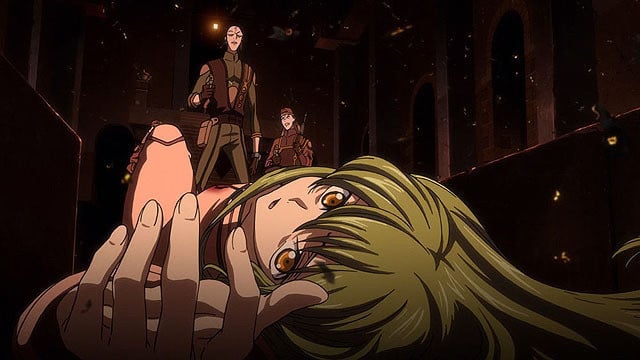
Granted, some of the transitions can be jarring, especially towards the latter half. The new characters, though playing into the recurring theme of consequences, don’t seem as well-developed. The aforementioned retconned plotlines can leave rather mixed impressions, depending on whether one likes the changes or prefers the 2006-08 series. Still, after over a decade, Lelouch of the Re;surrection fails to disappoint. Though not perhaps the best entry in the franchise, it’s undoubtedly a nice return to form.
And hopefully the start of a new generation of adventures for Lelouch and company.


